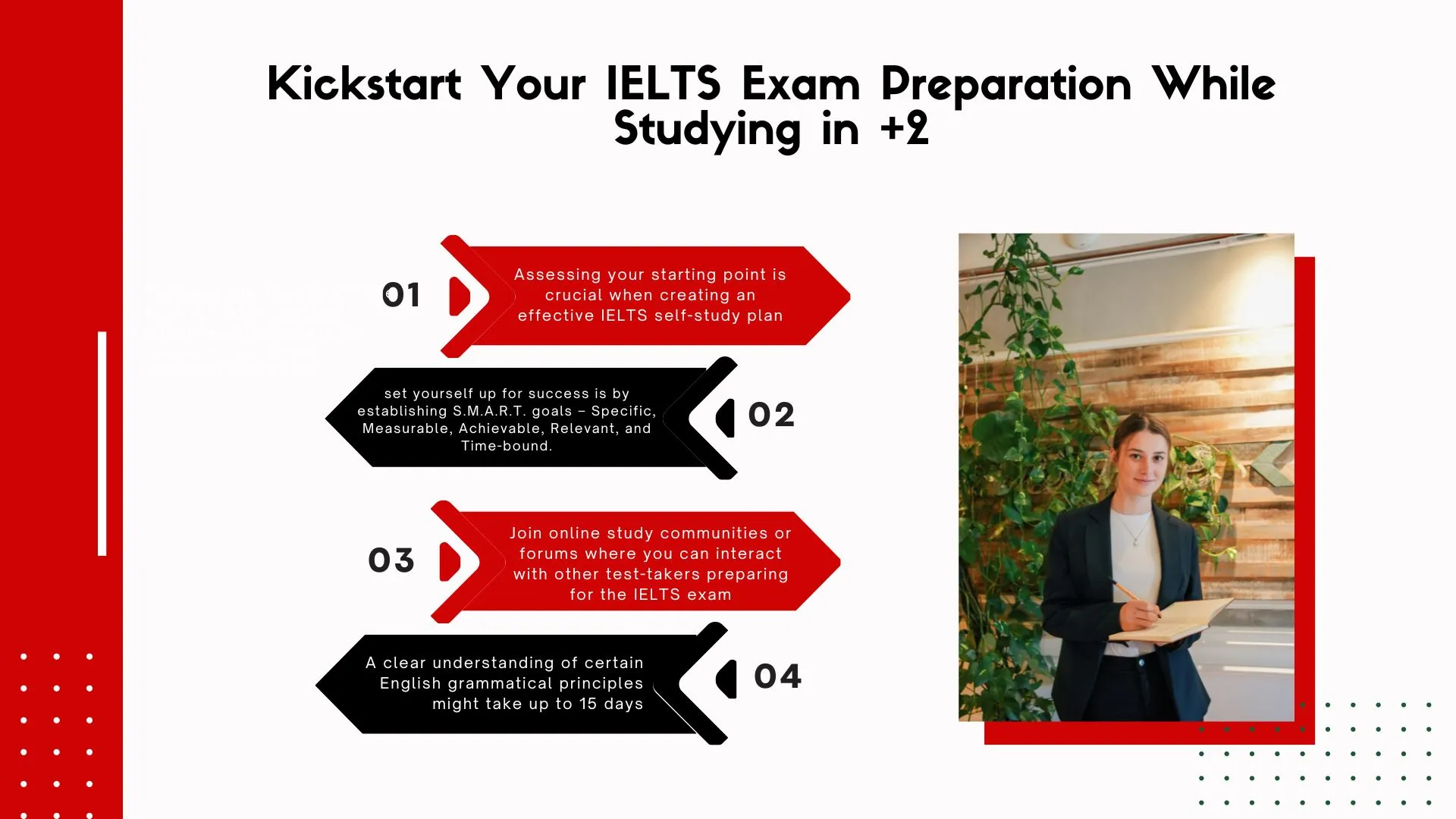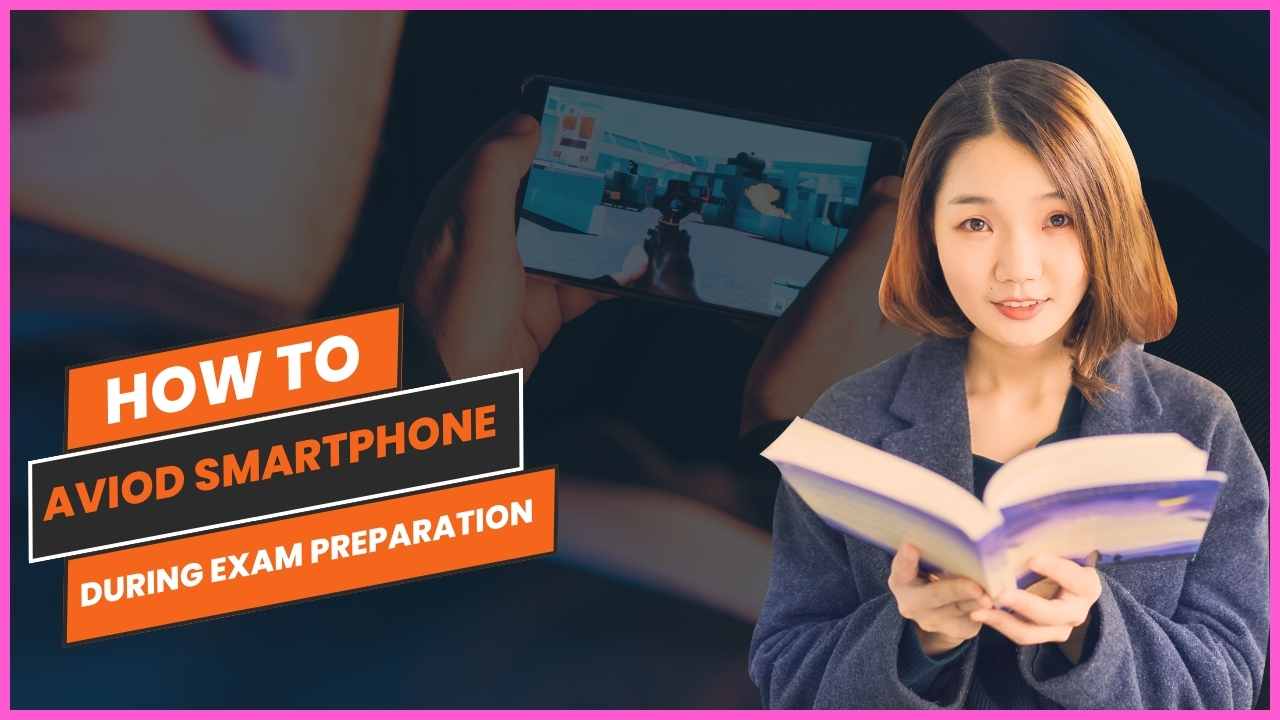Kickstart Your IELTS Exam Preparation While Studying in +2

If you’re a high school student in the +2 stage looking to pursue education or work abroad, the International English Language Testing System, better known as IELTS, is a milestone you’ll want to tackle with confidence. While the exam may seem daunting at first, a comprehensive and focused approach to preparation can significantly boost your performance.
IELTS Exam: Understanding its Purpose and Structure
Before we jump into prep strategies, it’s crucial to understand the essence of the IELTS exam. The IELTS evaluates your English language proficiency and is a requisite for admission to universities and colleges in English-speaking countries. It’s also essential for migration and work-related applications.
- Two Variants: Academic and General Training
IELTS offers two main variants – Academic and General Training. The Academic variant pertains to higher education admissions, while the General Training suits applicants seeking work experience or training programs. Each has four sections: Listening, Reading, Writing, and Speaking, designed to assess different language skills.
- The Scoring System Demystified
Scoring in IELTS ranges from 1 (non-user) to 9 (expert user), which reflects a test taker’s overall ability in English. Each section also receives a band score, with the overall band score being the rounded average of the four section band scores.
IELTS Exam Study Plan: Crafting a Winning Strategy
Crafting a winning IELTS study plan is crucial for achieving your desired score. When preparing for the IELTS exam through self-study and other platfrom, having a well-thought-out plan can make all the difference in your succe. Here are some guiding principles to shape your IELTS preparation:
Assess Your Starting Point: Assessing your starting point is crucial when creating an effective IELTS self-study plan. Begin by taking a practice test to identify your current strengths and weaknesses in the four components: Listening, Reading, Writing, and Speaking. This initial assessment will help you determine where to focus your efforts and set realistic goals for improvement.
Set S.M.A.R.T. Goals: Creating a structured and effective study plan is essential for achieving success in the IELTS exam. One proven method to set yourself up for success is by establishing S.M.A.R.T. goals – Specific, Measurable, Achievable, Relevant, and Time-bound.
- Specific: Clearly define what you want to achieve in each study session. For example, improving your writing skills by mastering complex sentence structures.
- Measurable: Set tangible targets such as completing a certain number of practice tests or learning new vocabulary words every day.
- Achievable: Be realistic about what you can accomplish within a given timeframe. Break down larger goals into smaller tasks to make them more manageable.
- Relevant: Ensure that your study goals align with the specific areas of the IELTS exam that you need to focus on based on your strengths and weaknesses.
- Time-bound: Set deadlines for each goal to keep yourself accountable and track your progress effectively.
- By incorporating S.M.A.R.T. goals into your IELTS study plan, you can enhance your productivity, stay motivated, and increase your chances of achieving your target score. Remember that consistency and dedication are key when preparing for the IELTS exam through self-study.
Allocate Study Time Wisely: Devote specific hours each day to IELTS preparation. Since you’re still in +2, balancing school coursework and test preparation is paramount. Create a timetable that allows regular but not overwhelming IELTS study sessions.
Diversify Your Study Materials: Besides traditional IELTS textbooks, use a variety of online resources such as podcasts, YouTube channels, and learning apps. This diversified approach keeps your study engaging and caters to various learning styles.
Learn The Fundamentals Of Grammar: A clear understanding of certain English grammatical principles might take up to 15 days. Tenses, prepositions, sentence structure, and other elements are among them. Begin by studying gerunds and infinitives. Learning gerunds and infinities is crucial since they aid in creating English sentences.
Practice In Front of A Mirror: Suppose you wish to improve your level of comfort while speaking English. Try speaking for 10 minutes each day in front of a mirror after that. Your confidence in speaking English will increase due to engaging with it in this manner. You will need a mirror, 10 minutes, and a discussion subject. Your command of sentence construction will likewise become stronger every day.
Mastering The Individual Sections For IELTS Exam
Each of the four IELTS sections requires a unique strategy and set of skills. Here’s how to approach them efficiently:
Listening: Practice active listening. Pay attention to context and take notes on key points, names, numbers, and dates. Familiarize yourself with a range of English accents by regularly exposing yourself to native speaker materials.
Reading: Skim through passages to get a general understanding before committing to a full read. This first approach helps in the efficient answering of multiple-choice, matching, sentence completion, and True/False/Not Given questions.
Writing: In the writing section, focus on task achievement, coherence and cohesion, vocabulary, and grammar. Develop a repertoire of sophisticated vocabulary and structures and practice timed essay writing.
Speaking: The speaking section assesses your ability to communicate effectively. Engage in regular conversational practice, record yourself to assess fluency and pronunciation, and simulate the speaking test environment as closely as possible.
How Technology Can Help You Succeed In IELTS Exam
Preparing for the IELTS exam can be a daunting task, but with the help of technology, you can streamline your preparation and improve your chances of success. There are various ways in which technology can assist you in your IELTS exam preparation.
Online Practice Tests: Utilize online platforms that offer IELTS practice tests. These resources can help you familiarize yourself with the format of the exam, practice time management, and identify areas where you need to improve.
Mobile Apps: There are numerous mobile apps available specifically designed to aid in IELTS preparation. These apps provide practice exercises, vocabulary building tools, and study materials that you can access anytime, anywhere.
Virtual Tutoring: Consider enrolling in virtual tutoring sessions offered by experienced IELTS instructors. Through video conferencing tools, you can receive personalized guidance and feedback on your performance to enhance your skills.
Language Learning Software: Explore language learning software that offers modules tailored to the requirements of the IELTS exam. These programs can help enhance your listening, reading, writing, and speaking abilities in English.
Online Study Communities: Join online study communities or forums where you can interact with other test-takers preparing for the IELTS exam. Sharing tips, resources, and experiences with peers can be beneficial for your preparation journey.
Social Media and E-Learning Communities: Join IELTS preparation groups on social media platforms or e-learning websites. Engaging with peers can provide support, motivation, and diverse learning experiences.
By incorporating these technological resources into your study routine, you can optimize your IELTS exam preparation efforts and increase your chances of achieving a successful outcome on test day. Remember to stay consistent with your practice and leverage technology as a supportive tool in mastering the English language skills required for the exam.
Balancing IELTS Exam Preparation with +2 Schooling
Maintaining a balance between IELTS preparation and +2 studies is crucial. Here’s how to ensure your IELTS prep doesn’t overpower your school commitments:
Prioritize According to Importance: Identify subjects and IELTS sections based on their relative weightage in your future academic or career aspirations. This prioritization helps in giving more time and effort to the most important areas.
Sync Your Timetables: Create an integrated timetable that aligns your school study periods with IELTS preparation slots. This prevents clashes and ensures you’re not sacrificing one for the other.
Utilize Cross-Learning Opportunities: Look for subjects in your +2 curriculum that can also help you with IELTS preparation. For instance, academic reading and writing tasks can improve your IELTS proficiency.
Final Practice and Exam Day Tips
In the final stretch, it’s all about fine-tuning your skills and mental readiness for the exam.
Practice Under Time Pressure: Spend the last few weeks taking practice tests under strict time conditions to simulate the real exam. This prepares you for the intensity and time constraints of the actual test.
Build Exam Day Strategies: Develop strategies for each section, including how to effectively manage your time and keep your cool when faced with difficult questions or tasks.
Get Proper Rest Before the Exam: Ensure you get a good night’s sleep before the exam. A well-rested mind is essential for good performance. Also, remember to have a light and nutritious breakfast to fuel your brain for the challenges ahead.
Reflect on Your Performance: After the exam, reflect on what went well and where you could improve. This self-assessment is invaluable for future exams and tests.
IELTS preparation during the +2 stage is not just another academic hurdle; it’s a stepping stone toward your global aspirations. By integrating smart preparation strategies with dedication and resilience, you can master the exam and open the doors to international opportunities.










